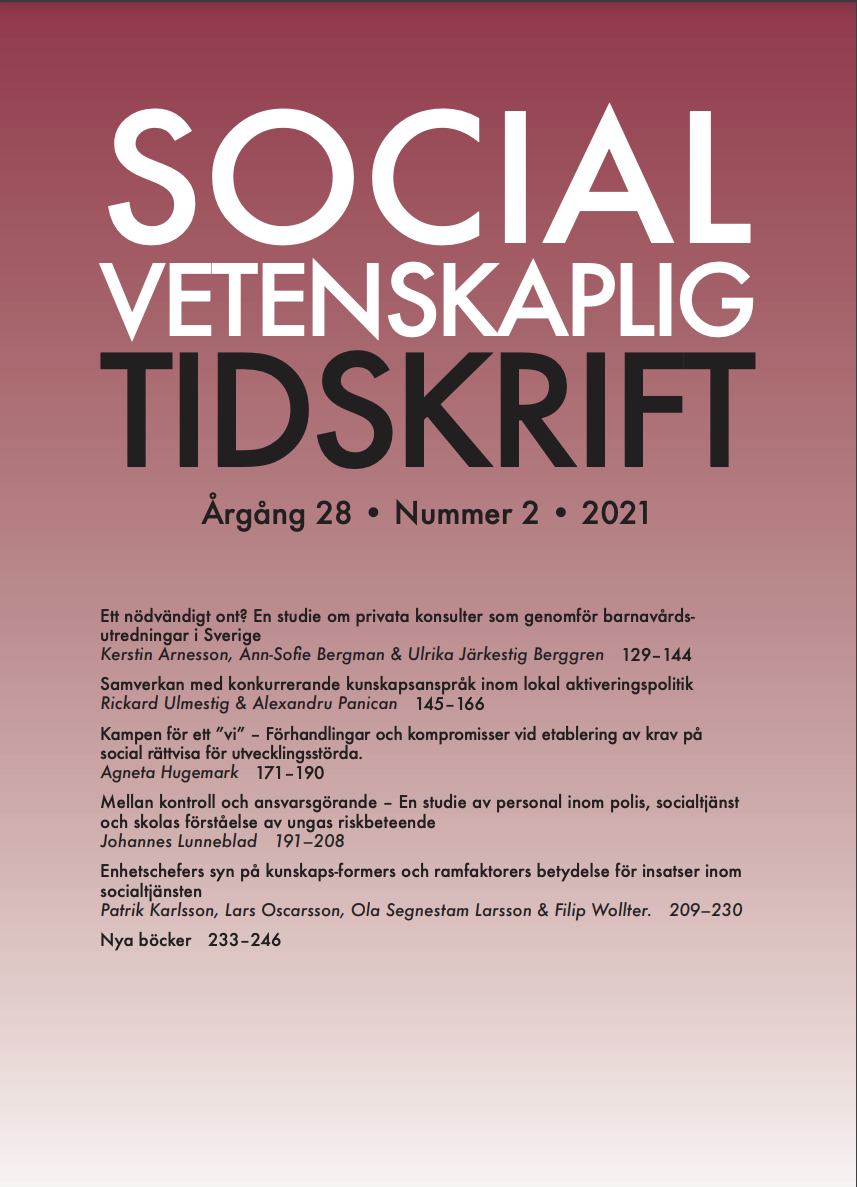Managers’ perspective on the impact of knowledge and organizational conditions on the design of social services interventions
DOI:
https://doi.org/10.3384/SVT.2021.28.2.4256Abstract
Swedish and international research shows that social work intervention design is permeated by a plurality of discretionary actors, knowledge forms, and organizational conditions. Against this background, this paper presents the results of a national questionnaire survey that explored and compared the organizational conditions and knowledge base of intervention design in local public administrations in Sweden. The empirical material of this study was gathered through a questionnaire survey completed by managers in Swedish social services. The sampling method was stratified based on the number of inhabitants in the municipality where the local public administration unit was located. Sweden’s 290 municipalities were divided into four strata. The data were analysed by descriptive statistical methods and correlation analysis (Spearman). The study found social work intervention design to be permeated by a pluralism of knowledge forms and organizational conditions. However, managers described some knowledge forms as more significant than others for the choice and design of interventions: professional experience-based knowledge, research-based knowledge, and evidence-based knowledge were described as the most significant. Client knowledge and layperson knowledge were described as the least significant, while organizational knowledge, such as local follow-ups and evaluations, was described as having a moderate impact on intervention design. When it comes to administrative and organizational conditions, financial restrictions were not reported as a crucial factor for the choice and design of interventions, while legislation and procurement were reported to have a greater impact.
Downloads
Published
Versions
- 2022-07-11 (3)
- 2022-03-11 (2)
- 2022-03-08 (1)
How to Cite
Issue
Section
License
Allt material i Socialvetenskaplig tidskrift publiceras sedan 2022 (Vol 28 Nr 2) med omedelbar öppen tillgång (open access), under Creative Commons-licensen CC BY 4.0. Upphovsrätten till innehållet tillhör respektive författare.
Allt innehåll i tidskriften är fritt tillgängligt utan kostnad och får fritt läsas, laddas ned, kopieras, delas, skrivas ut och länkas. När innehållet används måste författare, källa och licens anges. Författaren kan fritt göra sin publicerade text tillgänglig på institutionella och internetbaserade arkiv, exempelvis sitt lärosätes digitala arkiv eller andra tjänster för detta.
Inga publiceringsavgifter tas ut vid publicering i Socialvetenskaplig tidskrift.


